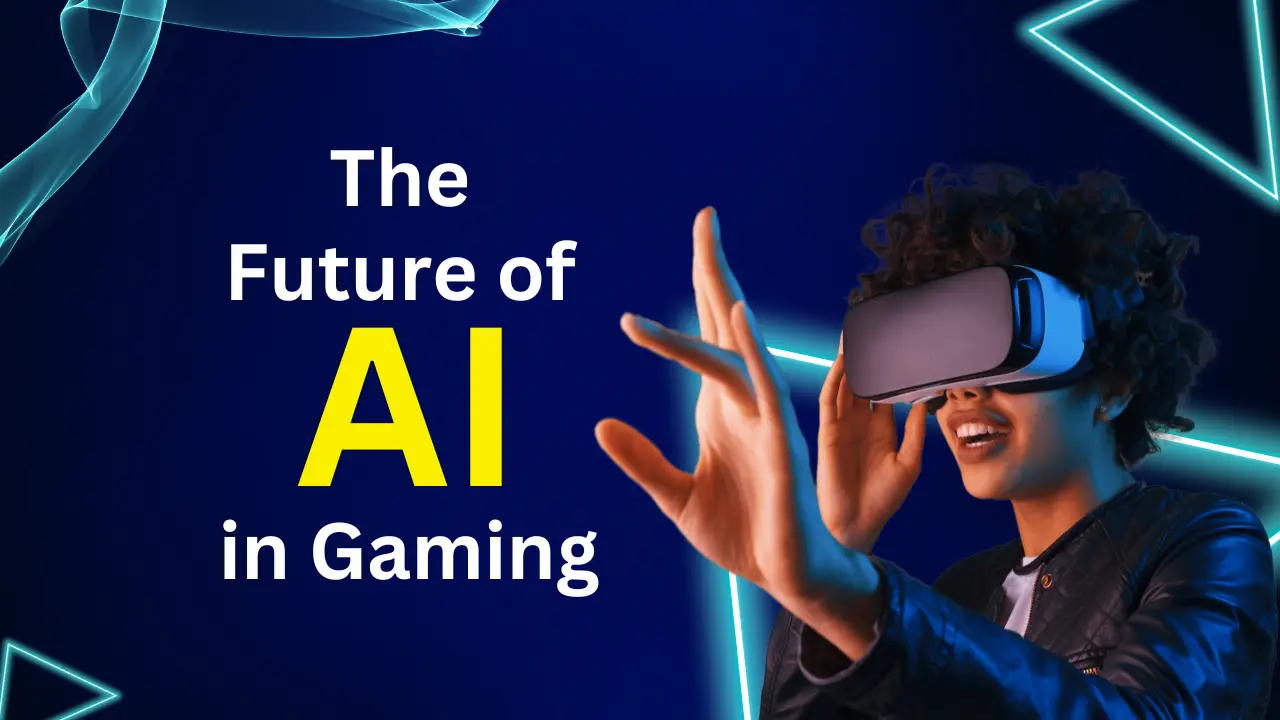The Future of AI in Gaming: Immersion Redefined
The gaming industry has always been at the forefront of technological innovation. From pixelated graphics of the early arcade era to photorealistic visuals powered by ray tracing, gaming continues to evolve. However, the true revolution is not just about better graphics or smoother gameplay—it’s about creating immersive experiences that blur the line between the virtual and real world. The Future of AI in Gaming: Immersion Redefined is paving the way for this transformation.
The Role of AI in Gaming Evolution
Artificial Intelligence (AI) has been a part of gaming since its inception. Early examples, such as the computer opponent in “Pong,” demonstrated basic programmed responses. Today, AI in gaming has grown to encompass complex decision-making algorithms, dynamic storylines, and procedurally generated environments. But what does The Future of AI in Gaming: Immersion Redefined mean for players and developers alike?
Dynamic Gameplay and Smarter NPCs
One of the most exciting advancements in AI is the development of smarter non-player characters (NPCs). Traditional NPCs often follow predetermined paths or scripts, which can make their behavior predictable and repetitive. Modern AI, however, uses machine learning and neural networks to create NPCs that adapt to player actions, exhibit lifelike behavior, and provide a unique challenge every time. Imagine playing a stealth game where guards learn your tactics over time or an RPG where characters remember past interactions and respond accordingly.
Personalized Player Experiences
The Future of AI in Gaming: Immersion Redefined goes beyond intelligent NPCs. AI algorithms analyze player behavior to offer personalized gaming experiences. By understanding a player’s skill level, preferences, and playing style, games can dynamically adjust difficulty levels, suggest tailored in-game events, or even create custom content. This level of personalization ensures that every player enjoys a unique and engaging experience.
Procedural Content Generation
Creating vast and detailed game worlds is a resource-intensive process. AI-driven procedural content generation addresses this challenge by designing expansive environments, quests, and storylines with minimal human input. Games like “No Man’s Sky” and “Minecraft” have showcased the potential of procedurally generated content. As AI algorithms become more sophisticated, developers can create infinitely varied worlds that are rich in detail and narrative depth.
Advancements in Realistic Interactions
AI-powered voice recognition and natural language processing (NLP) are revolutionizing player interactions within games. Players can now engage in meaningful conversations with NPCs, with responses that feel authentic and unscripted. For instance, an AI-driven RPG could allow players to negotiate with a virtual character using their own voice, leading to dynamic outcomes based on tone, choice of words, and context.
The Role of AI in Esports
Esports, a billion-dollar industry, is also benefiting from AI. AI tools analyze player performance in real-time, offering insights that were previously unavailable. Coaches and teams can leverage these insights to refine strategies, while AI commentators enhance broadcasts with in-depth analysis and predictions. The Future of AI in Gaming: Immersion Redefined will likely lead to smarter AI opponents that can simulate human-like gameplay, helping professional gamers train more effectively.
Challenges and Ethical Considerations
While the potential of AI in gaming is immense, it comes with its own set of challenges. Ethical concerns, such as data privacy and the impact of AI on employment in the gaming industry, need to be addressed. Additionally, ensuring that AI-driven content remains inclusive and free from bias is crucial for creating games that cater to diverse audiences.
Future Possibilities
The Future of AI in Gaming: Immersion Redefined is only scratching the surface. With advancements in AI, we could see:
- Hyper-Realistic Virtual Reality (VR): AI could enhance VR experiences by creating adaptive and believable virtual worlds.
- Sentient NPCs: Characters with evolving personalities and emotional intelligence, capable of forming deep relationships with players.
- Real-Time Story Adaptation: Games that rewrite their narratives based on player actions and decisions in real time.
- AI-Driven Game Development: Automated tools that assist developers in creating high-quality games faster and more efficiently.
The Future of AI in Gaming: Immersion Redefined represents a paradigm shift in how games are developed and experienced. By leveraging the power of AI, developers can craft worlds that are not only visually stunning but also deeply engaging and personalized. For players, this means an era of gaming where every interaction, every choice, and every moment feels alive.
As the gaming industry continues to innovate, one thing is clear: the fusion of AI and gaming is not just enhancing immersion—it’s redefining it. The journey has only begun, and the future promises experiences beyond imagination.

